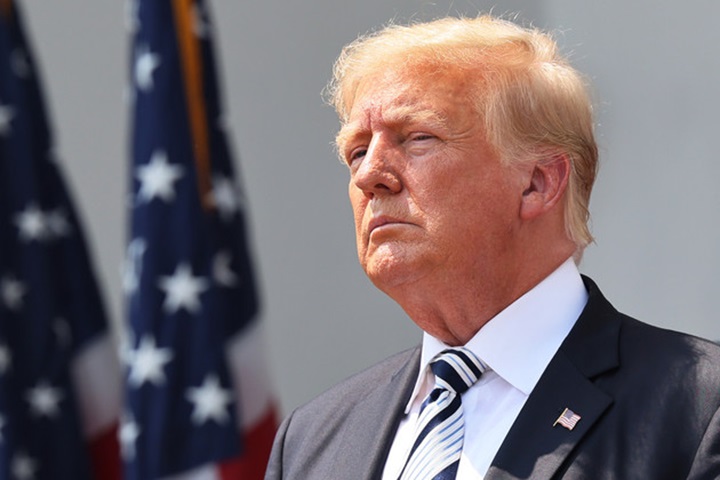The United States’ recent imposition of a 14% tariff on Nigerian exports has sent ripples through the country’s trade and economic sectors, threatening up to ₦323.96 billion in non-oil exports. The tariff, announced by former U.S. President Donald Trump on April 3, is part of a broader trade policy aimed at correcting what he describes as “unfair trade imbalances” between the U.S. and its partners.
Trump’s new policy applies a general 10% tariff on all U.S. imports, with increased rates for countries that impose steeper duties on American goods. Nigeria, which reportedly levies a 27% tariff on U.S. exports, has now found itself facing a 14% tariff in return. This adjustment could have serious consequences for non-oil sectors that are just beginning to gain a foothold in international trade.

While Nigeria’s exports to the U.S. typically average between $5 billion and $6 billion annually, more than 90% of that total is dominated by crude oil and gas products. Non-oil exports, which have been central to Nigeria’s economic diversification drive, make up a small but crucial portion of this trade. These include fertilizers, urea, lead, live plants, flour, nuts, and other agricultural products—many of which are now at risk of becoming less competitive due to the new tariff.
Urea and fertilizers currently account for about 2–3% of total Nigerian exports to the U.S., while lead makes up an estimated 1%, with a value of roughly $82 million. Though small in comparison to petroleum exports, these industries provide jobs and generate much-needed foreign exchange, especially at a time when the country is looking to move beyond oil dependency.
The Nigerian government has acknowledged the policy shift and is actively working on a response. Minister of Industry, Trade and Investment, Dr. Jumoke Oduwole, stated that the government is in talks with both U.S. officials and the World Trade Organization to address the situation. She emphasized Nigeria’s willingness to pursue pragmatic, balanced trade solutions that benefit both countries.
Economists warn that the impact of the tariffs will be felt in both the short and long term. In the immediate aftermath of the announcement, the Central Bank of Nigeria (CBN) intervened in the currency market, selling nearly $200 million to support the naira, which faced pressure as markets reacted to the news. Oil prices also dipped globally following the tariff shock, adding a second layer of concern for Nigeria, whose economy is still heavily reliant on crude exports.
Although oil is exempt from the tariff, the broader economic uncertainty it triggers affects investor confidence and creates volatility in key sectors. The situation has renewed calls for Nigeria to speed up efforts to develop other export-worthy industries and reduce its vulnerability to external economic shocks.
The U.S. administration has defended the move as a necessary correction to longstanding trade imbalances. It argues that high tariffs on U.S. goods entering Nigeria have discouraged American businesses, and that the new policy is designed to level the playing field. However, critics argue that such protectionist measures can hurt smaller economies more than they help larger ones, particularly when the affected countries are still trying to build industrial capacity.
For Nigerian exporters, the increased costs could translate to reduced demand in the U.S. market, as buyers turn to cheaper alternatives from other countries not affected by the new duties. The added expense could also squeeze profit margins, making it harder for businesses—especially small and medium-sized enterprises—to survive in the international market.
As the government continues its diplomatic outreach, trade analysts suggest a two-pronged approach: lobbying for fairer terms while simultaneously investing in competitive production, infrastructure, and trade facilitation. There is also growing consensus that Nigeria must reassess its own tariff policies if it hopes to maintain favorable trade partnerships going forward.
Ultimately, Trump’s 14% tariff may be a wake-up call for Nigeria to intensify its push for export diversification and reform its trade policies in a way that promotes mutual benefit. While the full impact is yet to be seen, it is clear that the road ahead will require a delicate balancing act between economic sovereignty and global competitiveness.
Support InfoStride News' Credible Journalism: Only credible journalism can guarantee a fair, accountable and transparent society, including democracy and government. It involves a lot of efforts and money. We need your support. Click here to Donate
